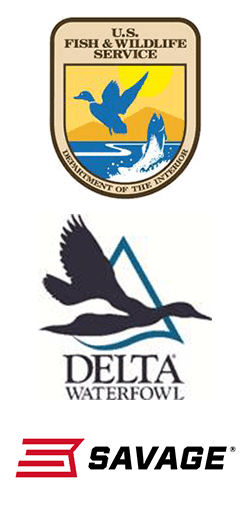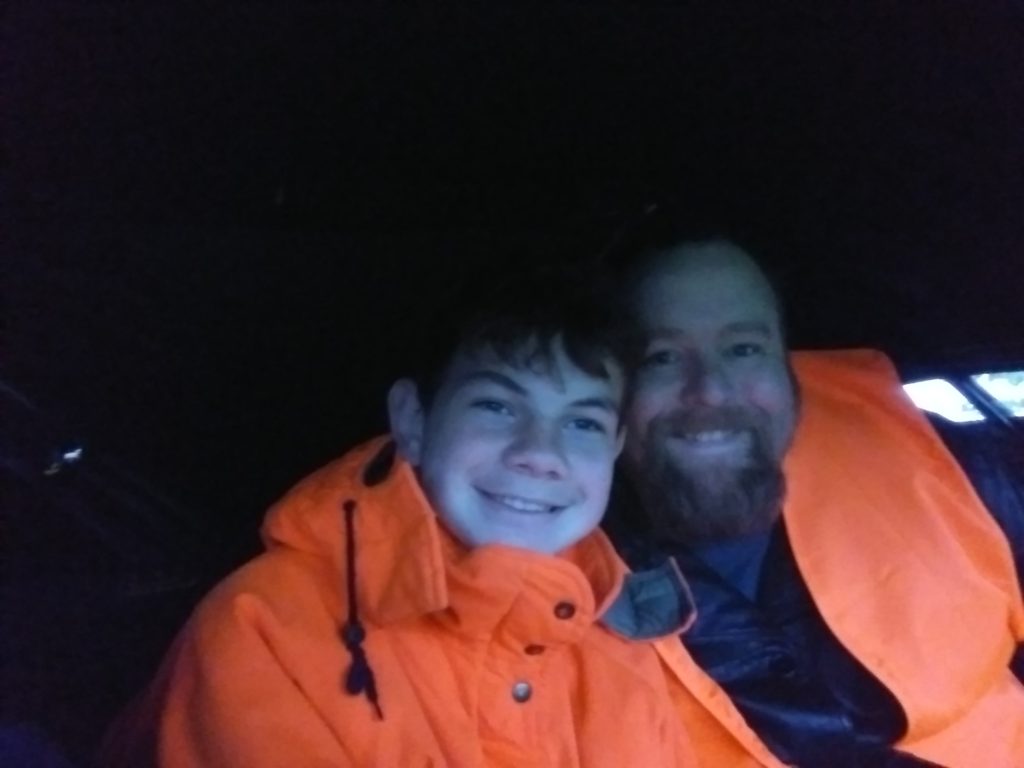Millions of New Hunters Are on the Way, Say Hunting, Conservation Groups
  |
NEWTOWN, Conn. — You’ve heard it said, “Nobody hunts anymore,” but that’s simply not true, said some of the nation’s top hunting and conservation groups during a press event at the SHOT Show® today. They cited new, innovative programs that are attracting large numbers of new hunters, allowing people to pursue their desire to hunt for healthful food and make a connection to the outdoors.
The National Shooting Sports Foundation® (NSSF®) the trade association for the firearms industry, was joined by the U.S. Fish & Wildlife Service, Delta Waterfowl and Savage Arms to discuss initiatives that look to create millions of new hunters in America. “We’re seeing many positive signs that show there is hope for the future of hunting,” said Jim Curcuruto, NSSF’s Director of Research and Market Development. “New research and programs show that many people are motivated to give hunting a try. They tell us it’s an activity to be enjoyed with family and friends, that hunting provides healthful meat for their tables, and it allows them to put their busy lives on hold for a time to recharge and reconnect with the outdoors and nature.”
Curcuruto was joined by Tom Decker, USFWS Wildlife Biologist; Joel Brice, Delta Waterfowl’s Vice President of Waterfowl & Hunter Recruitment Programs; and Beth Shimanski, Savage Arms’ Director of Marketing in delivering an upbeat message about hunting that pushes back against doomsayers, usually anti-hunters, that say hunting is not relevant in today’s world.
Curcuruto cited several initiatives, including NSSF’s +ONESM Movement mentoring program, which encourages experienced hunters to mentor youth and adults who have an interest in hunting. “Field-to-fork” and locavore programs are gaining interest from non-traditional audiences, and many states offer apprentice hunting licenses that allow newcomers to give hunting a try before taking a mandated hunter education course.
Also discussed was NSSF’s Hunting Heritage Trust Grant program that was introduced to support hunter-recruitment efforts. Five grants totaling $100,000 were awarded in 2019, and successful recruitment efforts were realized by grant recipients: Sportsmen’s Alliance, National Wild Turkey Federation, Pheasants Forever, Georgia Wildlife Federation and First Hunt Foundation. Information on applying for a grant in the 2020 grant cycle can be found here.
Brice said Delta Waterfowl is seeing its HunteR3 Initiative introduce hunting to new audiences. The program has three components: Delta’s First Hunt Program, which has introduced more than 75,000 people to waterfowl hunting; Delta’s University Hunting Program, which teaches future wildlife management professionals who don’t have hunting experience about the critical role hunting plays in supporting wildlife conservation; and Defend the Hunt, which both defends against threats to hunting opportunity and works to increase quality access for hunters throughout North America.
“The launch of our HunteR3 Initiative reaffirms Delta Waterfowl’s commitment to hunter recruitment, retention and reactivation as an important priority for us.,” said Brice. “Delta is working hard to ensure a strong future for hunting. We simply must recruit new waterfowl hunters to replace those who are hanging up their waders and calls.”
Decker said, “Research has shown that one of the primary barriers to hunting is not having access to land. Knowing this, USFWS, along with state wildlife agencies, have made a concerted effort to open access to high-quality habitat over the past decade. In 2020, more than 460 million acres of state-owned lands will be available to hunters, and federal agencies are making it easier to access federal lands as well. The agencies are using online mapping technology to provide better information on where to access land, and apps such as onX Hunt provide maps that make it easy to find available lands as well.”
Shimanski said, “Generation Grit was Savage’s way of honoring the mentors who continue to selflessly share their expertise with new hunters. Their efforts deserve to be recognized as they strive to help us all change the trend we’ve seen in hunting participation. The overwhelming response from mentors shows us that there is hope that we can continue the uptick we’ve seen in the number of new hunters, especially younger hunters and women. That is very important to this industry, as we all benefit when that happens.”
Curcuruto noted, “Much research has been conducted over the past decade, and we feel confident we have the formula for successful recruitment. State and federal wildlife agencies, along with many NGOs and conservation organizations, are doing terrific work recruiting new hunters, but the needle will move faster when more of the industry gets involved. If we want to continue to activate millions of new hunters, then any company selling to the hunting market should get involved with recruitment efforts. The good news is that the more manufacturers and retailers get involved in recruitment, the more new hunters we will have. It’s really that simple. Make sure 2020 is the year you join the +ONE Movement.”
Take a look at what happened when NSSF invited its staff to learn to hunt. We encourage you to conduct your own +ONE hunter recruitment efforts to help bring those millions of interested folks to the field.
To learn more about supporting this effort, visit NSSF’s +ONE Movement and R3 information pages or contact Jim Curcuruto at jcurcuruto@nssf.org.
About NSSF
The National Shooting Sports Foundation is the trade association for the firearms industry. Its mission is to promote, protect and preserve hunting and the shooting sports. Formed in 1961, NSSF has a membership of thousands of manufacturers, distributors, firearms retailers, shooting ranges, sportsmen’s organizations and publishers nationwide. For more information, log on to www.nssf.org.
You may also like
-
DNR Seeking Tips On Illegal Elk Shooting
-
DNR Reminds Hunters To Apply For A 2025 Elk Hunting License By May 31
-
Rocky Mountain Elk Foundation Offers $5k Reward To Catch Wisconsin Poachers
-
DNR Seeking Tips On Illegal Elk Shooting
-
NRA Files Amicus Brief in Challenge to Illinois’s Public Transit Carry Ban
